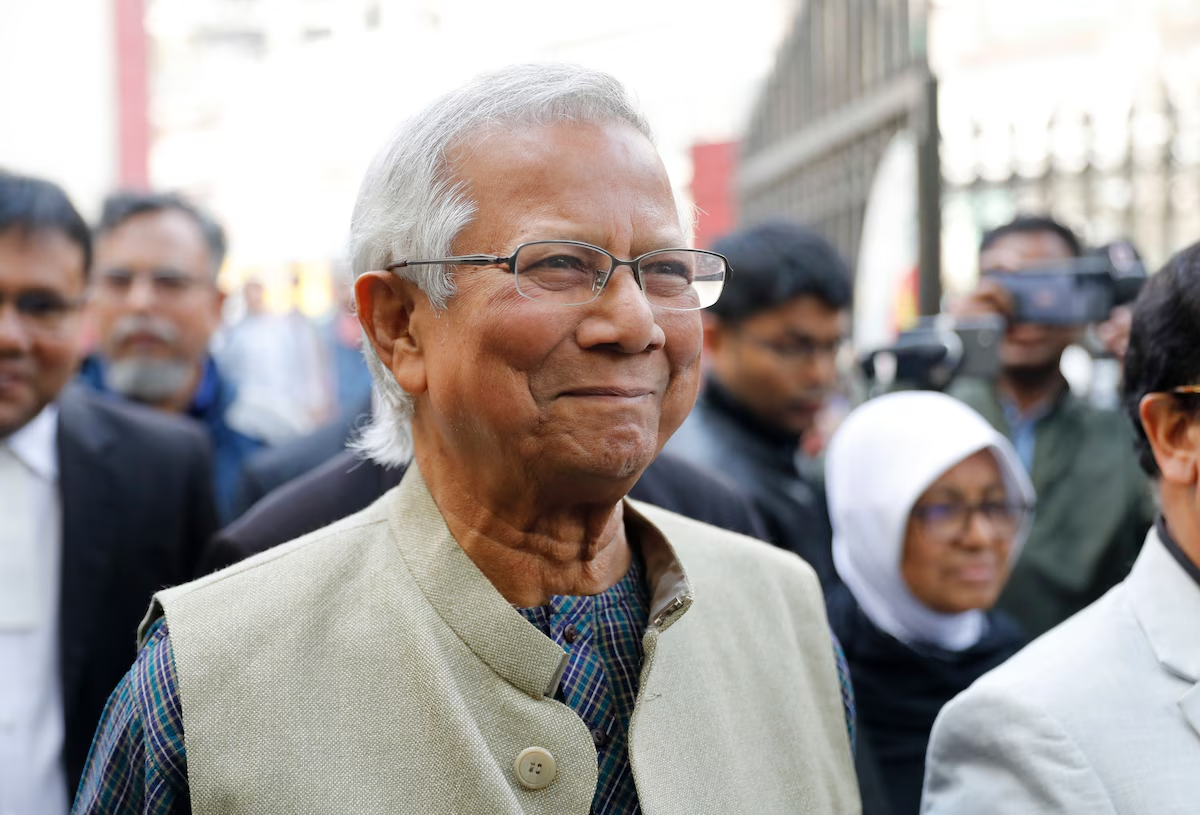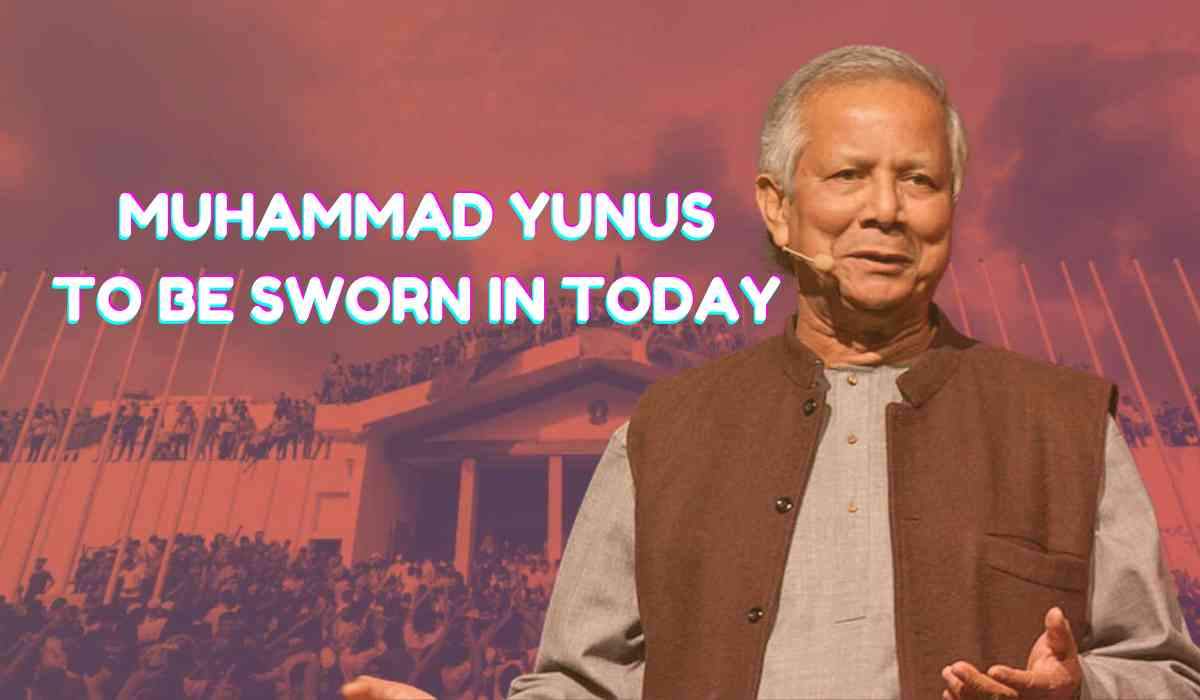Amidst a political crisis in Bangladesh, Nobel Laureate Muhammad Yunus is set to become the interim Prime Minister. This shift in leadership comes after Prime Minister Sheikh Hasina resigned following violent student protests.

- Muhammad Yunus Calls for Unity
On Wednesday, Yunus urged all factions within Bangladesh to collaborate for national rebuilding after weeks of violence. Emphasizing peace and calm, he stated, “Violence is our enemy. Please don’t create more enemies. Be calm and get ready to build the country.”
- Announcement of Oath-Taking Ceremony: Interim Government Formation
General Waker-Uz-Zaman, Chief of Army Staff, announced that the oath-taking ceremony for the interim government would be held on Thursday evening. Initially, the government is expected to comprise about 15 members. Due to Yunus’s expected arrival at 2:10 pm, the ceremony will likely be scheduled around 8 pm to ensure adequate preparation time. The event will accommodate 400 attendees.
- International Reactions and Expectations
-
US Involvement: US State Department Spokesperson Matthew Miller highlighted the critical role of Bangladesh’s interim government in upholding democratic principles. Miller emphasized the need for stability, institution building, and the organization of free, fair, and inclusive elections. He stated, “As the interim government makes decisions moving forward, we want to see them do so in a way that respects democratic principles.”
-
Nepal’s Call for Calm: Nepal’s Ministry of Foreign Affairs issued a statement urging calm and restraint amidst the political unrest in Bangladesh. The ministry expressed solidarity with the victims and stressed the importance of a peaceful return to democratic processes.
- Speculations of Asylum: Former Prime Minister Sheikh Hasina’s Situation
Sajeeb Wazed Joy, son of Sheikh Hasina, clarified that his mother has not decided on seeking asylum in the US or the UK. He dismissed such rumors, emphasizing the danger she faced. “This is not a political movement anymore; this is a mob ... they are going to kill you,” he said.
- Border Tensions and Regional Concerns
-
Bangladeshi Nationals at Indian Border: Hundreds of Bangladeshis gathered near the international border with India in West Bengal's Jalpaiguri district, claiming attacks in their country. The Border Guard Bangladesh (BGB) intervened, escorting the individuals back to Bangladesh.
-
Assam’s Security Measures: Assam Chief Minister Himanta Biswa Sarma expressed concerns over the turmoil in Bangladesh, stressing the importance of securing the borders. He noted that prolonged unrest could lead to an influx of refugees into India and warned against extremist elements taking advantage of the situation.
- Muhammad Yunus: A New Leader Amid Crisis
-
Yunus's Background: Muhammad Yunus, renowned for his work in microfinance, is Bangladesh’s only Nobel laureate. Known as the 'banker to the poor,' he founded a bank that revolutionized poverty alleviation through small loans. Yunus, a critic of Sheikh Hasina, was chosen to lead the interim government during a meeting of President Mohammed Shahabuddin, military leaders, and heads of the Students Against Discrimination group.
-
Yunus’s Return and Legal Matters: Yunus, who had been in Paris for medical treatment, is set to arrive in Dhaka today. Before boarding his flight, he expressed his commitment to organizing the country to overcome its current troubles. Notably, a court recently overturned his conviction in a labor case, clearing him to take on his new role.
- The Aftermath of Sheikh Hasina’s Resignation
Sheikh Hasina, who ruled Bangladesh for five terms, fled to India and is currently sheltered at an airbase near Delhi. Her resignation followed severe student protests against controversial job quotas, which escalated in July, resulting in over 250 deaths and thousands of injuries. The protests were fueled by economic hardships and political repression.
As Bangladesh navigates through this political transition, the appointment of Muhammad Yunus as the interim Prime Minister marks a significant turning point. The new government faces the critical task of restoring stability, upholding democratic values, and preparing for fair elections amidst ongoing domestic and international scrutiny.
With inputs from agencies
Image Source: Multiple agencies
© Copyright 2024. All Rights Reserved Powered by Vygr Media.
























